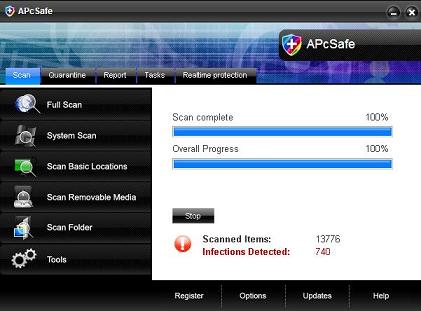Similar Posts
Avira AV update hangs systems
H-Online Says: A faulty update for Avira‘s paid-for anti-virus software blocks harmless processes and may in some cases stop computers from booting. The update results in the ProActiv behavioral monitoring component becoming oversensitive in its treatment of executable files. According to user reports, ProActiv blocks trusted system processes such as cmd.exe, rundll32.exe, taskeng.exe, wuauclt.exe, dllhost.exe,…
Chrome 8 Hits Dev Channel with GPU Acceleration, More Labs Offerings
Windows/Mac/Linux: Chrome has hit version 8 in its Dev builds, adding more solid graphics acceleration to the web using your video hardware, along with a few new Labs features that herald the coming of Chrome OS. If you’re using the Dev channel, open up a tab and type in about:labs. You’ll notice features there to…
Fake BBC Website Serves Exploits and Work From Home Offers
GFI Wrote: In September, our friends at Sophos wrote about a fake BBC website offering up the “chance” to work from home for predictably large sums of money. No more than a day later, we were covering fake BBC video posts targeting Facebook users. Today we’re looking at a fake BBC URL which drops the…
Child Tax Credit is the New Phishing Bait
Who wouldn’t want some tax benefits in the current economic times? Don’t phishers and scammers know that all too well! In a new phishing scheme, We found that Child Tax Credit is being used as bait to lure parents to disclose their financial data. This attack specifically tries to convince users to make claims for…
VirusTotal online scanner adds behavior analysis
h-Online: The developers of the VirusTotal online virus scanner service are currently testing a new sandbox feature to provide users with more meaningful scan results. In a post on the company’s blog, software architect and developer Emiliano Martinez says that, for this purpose, samples uploaded to the service are executed in a controlled sandbox environment…
Yahoo Chairman Steps Down
Mashable: Yahoo‘s chairman of the board, Roy Bostock, is leaving the company. Bostock has been chairman since 2008. Bostock revealed the news to shareholders in a long letter describing the company’s recent re-strategizing. A far cry from a resignation letter, Bostock is upbeat about Yahoo’s future and its recent moves, saying that, since the company…
